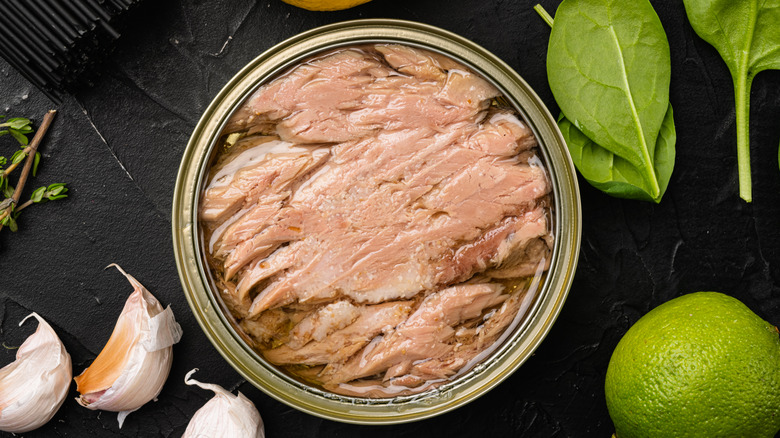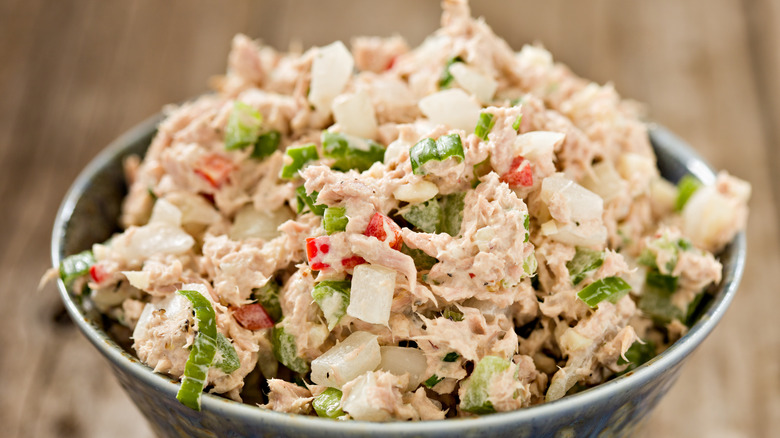Does Canned Tuna Count As Processed Meat?
Cans of tuna: You probably have a stack in your pantry right now, ready for making a tasty tuna salad sandwich, a crisp niçoise salad, or a comforting tuna casserole. There are plenty of ways to dress up the humble can of tuna, and for that reason it is a kitchen staple. This handy source of lean protein is often consumed as a part of a well-balanced diet. Tuna is thought of as a pretty healthy food, containing beneficial vitamin D, omega-3 fatty acids, and protein, even if it is added to more indulgent dishes. However, you might be wondering if canned tuna is considered a processed meat, akin to products like bacon or sausage. And the answer is yes.
Processed meat is defined as a meat that has been preserved in some way, by salting or smoking, for example, or by adding chemical preservatives. Tuna is technically considered a meat, coming from the tuna fish, and because it undergoes the process of canning, which includes adding salt and ingredients such as oil, broth, water, or seasonings, then it is a processed meat.
However, processed meat is a particularly unsavory category for many diners because it's often higher in potentially dangerous carcinogens, which can increase risk of cancer. Additionally, the increased sodium content in many processed foods can be detrimental for cardiovascular health. But while the canning procedure makes tuna shelf stable and adds to its flavor, how processed is canned tuna? And does it still count as a good source of protein? Let's see.
The process of processing canned tuna
Though canned tuna is a processed food, it isn't as processed as meats such as sausage or deli meats, which are often infused with nitrates to keep them looking pink and appetizing, which are what increases their cancer risk. Happily, canned tuna does not contain nitrates and its canning process is actually relatively straightforward. The fish is steamed, deboned, and then canned along with salt and oil or water. To keep harmful bacteria from contaminating the tuna, the canned fish is then cooked at a high temperature to kill all bacteria. These methods are essential to make the fish shelf stable, keeping it edible for extended periods of time. Overall, tuna remains a great budget-friendly source of lean protein with 25 grams of protein per 100 grams.
However, there is one aspect of canned (or fresh) tuna that you should keep in mind: mercury content. Like many other large fish, such as swordfish, tuna contains mercury, a metal that can be hazardous for human health. If consumed regularly, the amount of mercury exposure from tuna could lead to adverse health effects. Though it should be noted that, despite the debate, tuna is generally safe to eat at least a couple of times a week. However, certain populations, such as pregnant people and children, should avoid any fish that contain high levels of mercury. With these facts in mind, your stack of canned tuna can still serve as a great source of protein and be the start of simple yet refined tuna salad sandwich.

